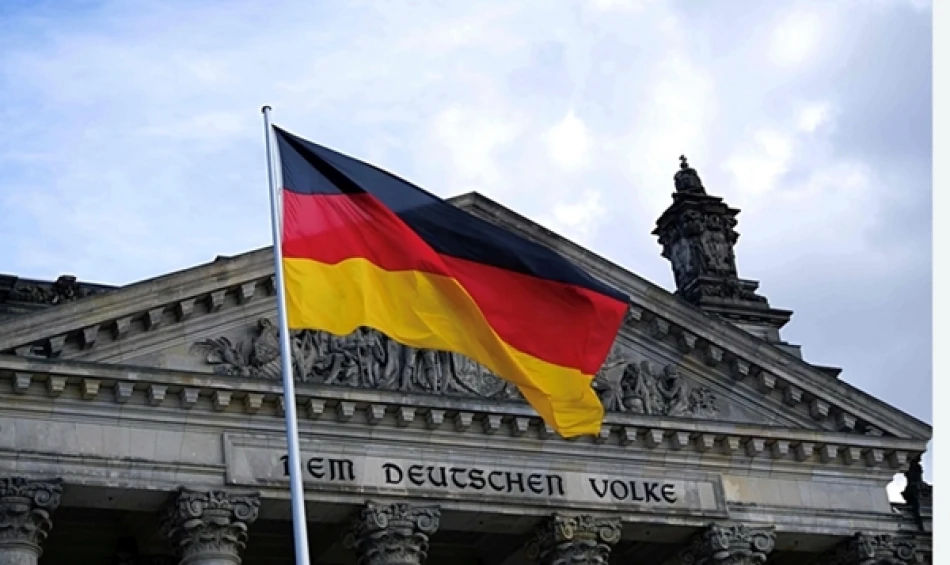
Germany Pledges Ongoing Support for Ukraine at UN Security Council
Germany Pledges Long-Term Military Support for Ukraine as Kyiv Demands Advanced Weaponry
Germany's new UN ambassador has committed to indefinite military backing for Ukraine, signaling Berlin's deepening involvement in the conflict as Ukrainian officials press for sophisticated air defense systems and long-range strike capabilities. The pledge comes amid escalating pressure on Western allies to provide more advanced weaponry despite growing war fatigue among European populations.
Berlin's Open-Ended Commitment Marks Strategic Shift
Ambassador Riklef Beutin's statement at an emergency UN Security Council session represents a notable evolution in German foreign policy. His declaration that Germany "will support Ukraine and its right to defend itself for as long as necessary" abandons previous hedging about timeline limits, suggesting Berlin is prepared for a protracted conflict that could extend well beyond 2024.
This commitment is particularly significant given Germany's historical reluctance to engage in military conflicts and its initial hesitation to provide lethal aid when the war began. The country has since become Ukraine's second-largest weapons supplier after the United States, delivering everything from anti-tank missiles to advanced Leopard tanks.
Ukraine Escalates Weapons Demands
Ukrainian Prime Minister Yulia Svyrydenko used the Security Council platform to intensify calls for additional air defense systems and long-range weapons platforms. Her appeal reflects Ukraine's strategic calculus that Western-supplied advanced weaponry could decisively shift battlefield dynamics by enabling strikes deep into Russian territory.
The request for long-range capabilities is particularly sensitive, as it could potentially allow Ukraine to target military installations, supply depots, and command centers far from the front lines—a capability that Russia has warned would constitute direct NATO involvement in the conflict.
The Air Defense Gap
Ukraine's urgent plea for air defense systems underscores a critical vulnerability. Despite receiving Patriot missiles and other Western systems, Ukrainian cities continue to face devastating aerial bombardments. The country needs comprehensive coverage that current supplies cannot provide, particularly as Russia has adapted its tactics to overwhelm existing defenses.
Strategic Implications for Western Alliance
Germany's indefinite commitment creates both opportunities and risks for the broader Western coalition. On one hand, it provides Ukraine with crucial predictability for long-term military planning. On the other, it potentially locks Germany into an expensive, open-ended engagement that could strain domestic political support as economic pressures mount.
The pledge also raises questions about escalation management. Unlike the United States, which maintains some ambiguity about future support levels, Germany's unconditional promise could limit diplomatic flexibility if peace negotiations emerge or if the conflict dynamics shift dramatically.
Economic and Political Calculations
From Berlin's perspective, the commitment likely reflects a calculation that supporting Ukraine's victory—or at least preventing its defeat—serves German strategic interests better than a negotiated settlement that leaves Russian military capabilities intact. This approach aligns with similar long-term commitments from Nordic countries but contrasts with more cautious positions from France and Italy.
However, sustaining this support will require navigating domestic economic challenges, including energy costs and defense spending increases that are already straining Germany's federal budget. The commitment also tests German public opinion, which has shown declining enthusiasm for military aid as the conflict has prolonged.
Regional Security Architecture at Stake
Germany's pledge reflects broader concerns about European security architecture beyond Ukraine. A Russian victory or negotiated settlement that legitimizes territorial conquest could embolden similar actions against other former Soviet states, potentially drawing Germany into future conflicts closer to its borders.
This calculation explains why Berlin appears willing to accept the financial and political costs of indefinite support, viewing it as preferable to the potential consequences of Ukrainian defeat or a compromise that strengthens Russian revisionist ambitions in Eastern Europe.
Most Viewed News

 Layla Al Mansoori
Layla Al Mansoori






